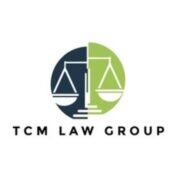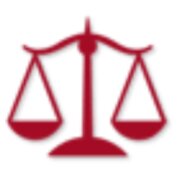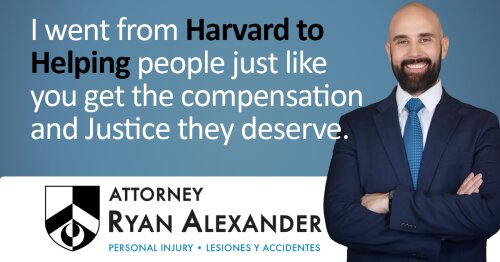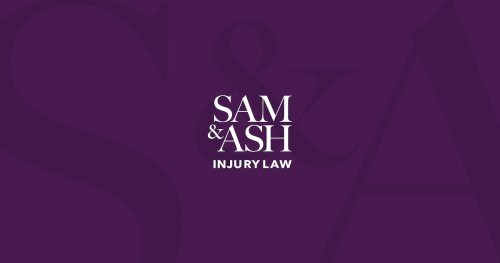Best Defamation Lawyers in Las Vegas
Share your needs with us, get contacted by law firms.
Free. Takes 2 min.
List of the best lawyers in Las Vegas, United States
About Defamation Law in Las Vegas, United States
Defamation law covers false statements that harm a person or business reputation. In Las Vegas, which is in Clark County, Nevada, defamation claims follow Nevada state law and federal constitutional principles. There are two main types of defamation - libel and slander. Libel refers to written or published false statements, while slander refers to spoken false statements. To succeed in a defamation claim you generally must show that a false statement was made, that it was communicated to a third party, that it referred to you, and that it caused harm. The level of fault required depends on whether the plaintiff is a private person or a public figure, because First Amendment protections apply more strongly when matters concern public officials or public concerns.
Because Las Vegas is a major media market with many national and online outlets, defamation cases often involve a mix of state law, federal constitutional standards, and internet law. Outcomes can turn on factual proof, legal defenses like truth or opinion, and procedural matters such as where the claim is filed and when it is brought.
Why You May Need a Lawyer
Defamation disputes can be complex and high stakes. You may need a lawyer if you are dealing with any of the following situations:
- You or your business are accused publicly of criminal conduct, fraud, professional incompetence, or immoral behavior, and the statements are false.
- False allegations are spreading online, through social media, blogs, review sites, or local media outlets, and causing measurable harm to reputation, income, or relationships.
- The speaker or publisher refuses to retract or correct the false statements and you need help preparing a demand letter or negotiating a resolution.
- You are a public figure or involved in a public controversy and you need to understand whether the higher actual-malice standard applies.
- You face an attempt to sue you for defamation and need a defense - for example, to assert truth, privileged communication, or that the statement was nonactionable opinion.
- You want to pursue damages but need help documenting harm, calculating compensatory and punitive damages, and presenting evidence in court.
Local Laws Overview
The following points summarize key aspects of defamation law and local procedural considerations in Las Vegas and Nevada:
- Elements of a claim - Nevada follows the general common-law elements: a false and defamatory statement, publication or communication to a third party, fault by the defendant, and resulting damages.
- Libel versus slander - Written or recorded statements are usually treated as libel; spoken statements are slander. Libel often presents easier proof because written statements are more enduring and can be introduced as evidence.
- Public figure and public concern - If the plaintiff is a public official or public figure, or the statement involves a matter of public concern, the U.S. Supreme Court requires proof of actual malice - that the defendant knew the statement was false or acted with reckless disregard for the truth. For private individuals, Nevada courts generally apply a lower fault standard such as negligence.
- Defenses - Truth is an absolute defense. Other common defenses include opinion (nonactionable expressions of pure opinion), privilege (absolute privilege for certain communications such as in judicial or legislative proceedings, and qualified privilege for some reporting or employer references), consent, and statutory protections for online platforms.
- Online platforms and Section 230 - Interactive computer services that host third-party content generally have broad immunity under federal law, which can limit suits against websites or social media platforms. However, the original poster or publisher may still be sued.
- Damages - Plaintiffs may pursue compensatory damages for actual harm, special damages for provable economic loss, general damages for emotional harm and reputation loss, and in some cases punitive damages for malicious conduct. Certain categories of statements may give rise to presumed damages in some jurisdictions - check with counsel about Nevada specifics.
- Statute of limitations - Defamation claims are time-sensitive. In Nevada the statute of limitations for libel and slander is generally two years under state law, so timely action is critical.
- Court venue - Defamation claims exceeding small-claims limits are typically filed in Nevada district court. For limited claims within small-claims thresholds, justice or small-claims court procedures may apply.
Frequently Asked Questions
What exactly is defamation?
Defamation is an injury to a person or entitys reputation caused by false statements presented as fact to others. If the false statement harms reputation and satisfies legal elements, the injured party may sue.
How do libel and slander differ?
Libel is a false statement in a permanent form - for example, written words, published articles, or recorded broadcasts. Slander is a false, spoken statement. Libel claims are usually easier to prove because the statement is preserved and can be entered into evidence.
What must I prove to win a defamation lawsuit in Nevada?
You must typically prove the statement was false, published to a third party, about you, and that it caused harm. You must also show the appropriate level of fault - negligence for most private plaintiffs, and actual malice for public figures or matters of public concern.
Who is a public figure and why does it matter?
A public figure is someone with pervasive fame or who has voluntarily injected themselves into a public controversy. Public officials are a related category. Public figure status raises the burden of proof - you must show actual malice, meaning the defendant knew the statement was false or acted with reckless disregard for the truth.
Is truth always a complete defense?
Yes. Truth is an absolute defense to defamation. If the disputed statement is substantially true, a defamation claim will generally fail even if the statement was published widely.
Can I sue for statements made online or on social media?
Yes. Online statements can be the basis for a defamation claim if they meet the required elements. Be aware that platforms that host third-party content often have federal immunity, but the individual who posted the content may still be liable.
What should I do first if I believe I have been defamed?
Preserve evidence immediately - save screenshots, recordings, URLs, dates, witness names, and any documents showing harm such as lost contracts or negative reviews. Do not destroy or alter materials. Consider sending a targeted demand letter through an attorney before filing suit, and avoid engaging in public arguments that might complicate your case.
How long do I have to file a claim?
Time limits apply. In Nevada the statute of limitations for defamation is generally two years, measured from the date of publication or when the plaintiff discovered the statement. Because exceptions can apply, consult an attorney promptly to avoid losing rights due to delay.
What damages can I recover?
You may recover compensatory damages for proven economic loss, general damages for harm to reputation and emotional distress, and in some cases punitive damages for malicious or egregious conduct. Recoverable damages depend on the facts, the strength of evidence, and applicable law.
Can I get a retraction, correction, or injunction instead of money?
Yes. Plaintiffs sometimes seek a retraction, correction, apology, or injunction to remove or prevent further publication. Courts are cautious about prior restraint and injunctions because of First Amendment concerns, so remedies vary by case. Negotiated resolutions or corrective statements are common alternatives to litigation.
Additional Resources
When you need further information or help, consider these Nevada and national resources and organizations that are relevant to defamation matters:
- Nevada State Bar - for lawyer referrals, attorney discipline information, and public resources about hiring a lawyer.
- Clark County Law Library and the Clark County District Court - for local court forms, rules, and procedure.
- Legal Aid of Southern Nevada and other local legal aid clinics - for low-bono or pro bono assistance if you meet eligibility criteria.
- Nevada Attorney General - for information on state consumer protections and public resources.
- Nevada Press Association and local media outlets - for standards and inquiries involving journalism practices and corrections.
- Reporters Committee for Freedom of the Press and similar organizations - for media law guidance, particularly for journalists and news organizations.
- ACLU of Nevada - for civil liberties issues that may intersect with defamation and free-speech questions.
- Law libraries and online legal research tools - to review Nevada Revised Statutes, case law, and local court rules.
Next Steps
If you believe you have been defamed or you have been accused of defamation, take these practical steps:
- Preserve evidence - save screenshots, recordings, emails, messages, witness names, and dates. Keep originals and make backups.
- Document harm - record lost business, canceled contracts, missed job opportunities, and any emotional or reputational impacts with as much detail as possible.
- Avoid escalating the dispute publicly - do not post angry responses that could be used as admissions or aggravate the situation.
- Consider a demand letter - an experienced attorney can draft a professional demand for retraction, correction, or damages and often resolve the issue without filing suit.
- Consult an attorney promptly - look for Nevada-licensed litigators with experience in defamation, media law, or internet law. Prepare for your first meeting by bringing evidence, a timeline, and a summary of harm.
- Assess costs and strategy - discuss fee arrangements, possible contingency representation, the likelihood of success, and alternatives like negotiation, mediation, or litigation.
- File suit if necessary - if negotiations fail and a claim is viable, your lawyer will advise on the proper court, pleadings, jurisdiction issues, and timelines, keeping in mind time limits like the statute of limitations.
Disclaimer - This guide provides general information only and does not create an attorney-client relationship. It is not legal advice. For advice about your particular situation consult a licensed Nevada attorney.
Lawzana helps you find the best lawyers and law firms in Las Vegas through a curated and pre-screened list of qualified legal professionals. Our platform offers rankings and detailed profiles of attorneys and law firms, allowing you to compare based on practice areas, including Defamation, experience, and client feedback.
Each profile includes a description of the firm's areas of practice, client reviews, team members and partners, year of establishment, spoken languages, office locations, contact information, social media presence, and any published articles or resources. Most firms on our platform speak English and are experienced in both local and international legal matters.
Get a quote from top-rated law firms in Las Vegas, United States — quickly, securely, and without unnecessary hassle.
Disclaimer:
The information provided on this page is for general informational purposes only and does not constitute legal advice. While we strive to ensure the accuracy and relevance of the content, legal information may change over time, and interpretations of the law can vary. You should always consult with a qualified legal professional for advice specific to your situation.
We disclaim all liability for actions taken or not taken based on the content of this page. If you believe any information is incorrect or outdated, please contact us, and we will review and update it where appropriate.
















